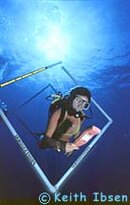If you look more closely the article says that in SIXTY PERCENT of the cardiac events there was recognized cardiac symptoms in the divers involved. Id say when you have recognized cariac issues while on the boat it is VERY MUCH a human error to jump into an enviroment where you cant breathe anything but whats in your tank and any form of emergency response is severely inhibited..
I also cant see how running out of gas is NOT a human error.
The only way I can find this article to be a "nothing story" is if you already have knowledge of these things and if you do, its not targeted towards you in the first place.
Yet theres a lot of people on scubaboard frowning upon checkout dives because they feel its an insult to have to prove they can dive..
(as has been seen in threads discussing the topic before)
Of course it's human error but it's obvious. Also, I doubt there are people having heart attacks on the boat who are then continuing to dive
However we know that people should be competent to dive before diving and everyone has that knowledge if they stop to think about it.
Everyone already knows not to run out of air as well.
Most accidents happening on the first dive makes sense as well. Those who shouldn't be diving are weeded out pretty quickly sometimes. I don't think there is any secret to most of these problems however.
I went on a dive in Canada once where two brothers from Calgary were doing their first cold water dives. All others had been warm water vacation dives. They had less than 20 of those dives as well.
They showed up without drysuits and were sure it wouldn't be a problem. On the first dive the first brother didn't make it under the water and the second brother ended his dive after 10 minutes. They cancelled the rest of their 3 day trip.
However this was no surprise to anyone else on the boat. I would argue that the majority of accidents are no real surprise to others on those dives as well. Most accidents are either health related (realistically not much one can do about them) or are due to things so obvious that everyone (perhaps other than the victim) recognizes the issue from the start.
I don't even think it has a lot to do with inexperience. Experience plays a large role in diving but not necessarily in good judgement. Didn't most of us here know not to run out of air even as a brand new diver?
Last edited:







